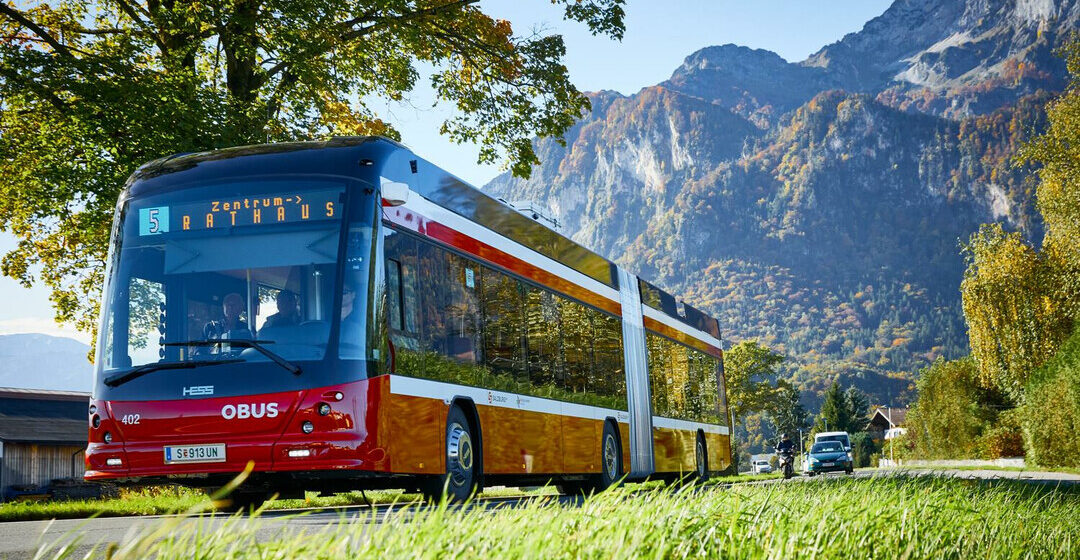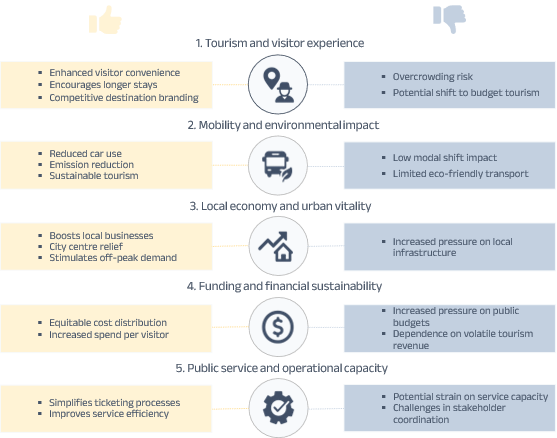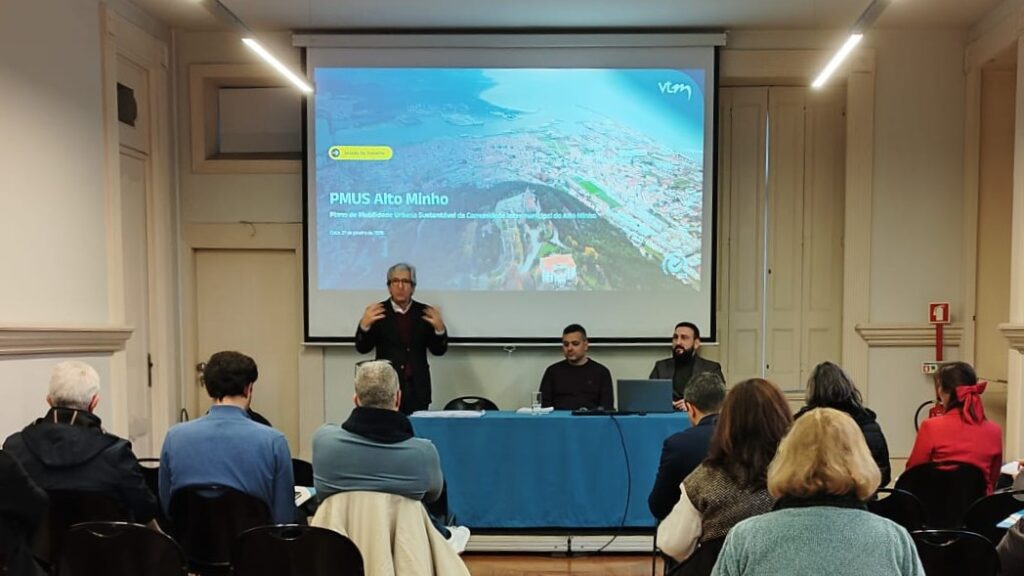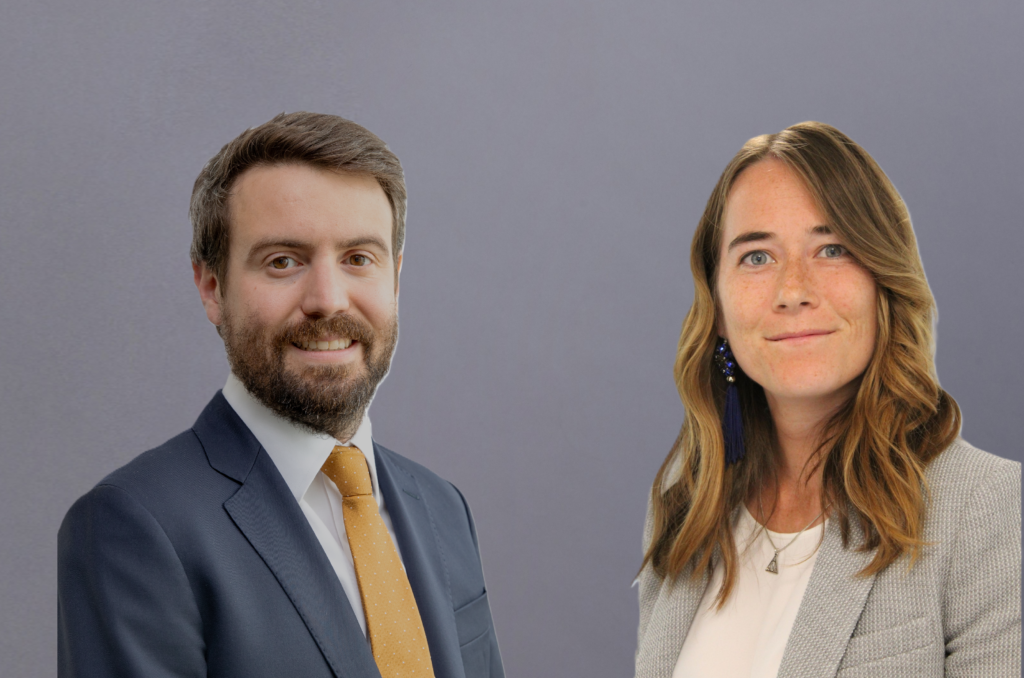Free public transport for tourists: sustainable mobility or urban challenge?

As of 1 May 2025, Salzburg, Austria (≈ 154,000 inhabitants) introduced the Guest Mobility Ticket, offering free public transport to overnight visitors. Funded through an accommodation-based mobility fee, this ticket grants unlimited access to regional trains, city buses, and shuttle services, emphasising Salzburg’s commitment to sustainable tourism.
Free public transport: A broader European context
Across Europe, over 50 cities and towns have now implemented free public transport, initially focusing on specific demographics such as youth, elderly, and low-income residents.
- Tallinn, Estonia (≈ 438,000 inhabitants), introduced free transport for residents in 2013. However, after more than a decade, authorities remain sceptical about its effectiveness in significantly reducing private car usage.
- Luxembourg (≈ 667,000 inhabitants) became the first country worldwide to provide nationwide free public transport in 2020, significantly increasing usage and reducing traffic congestion, particularly in the capital city.
- Cascais, Portugal (≈ 215,000 inhabitants), has provided free bus transit for residents, students, and local workers since 2020. Within two years, the policy resulted in a 10% increase in passengers and nearly doubled journeys, further transporting about 9.5 million passengers annually. Despite higher ridership, the policy has had limited success in significantly shifting motorists to public transport.
- Montpellier, France (≈ 308,000 inhabitants), introduced city-wide free bus and tram services in December 2023, becoming the largest French city to adopt such a policy. Early indications suggest improved urban mobility and positive public reception.
- Belgrade, Serbia (≈ 1.4 million inhabitants), adopted free public transport for all residents in January 2025, becoming the largest European city to implement such a measure, reflecting a significant commitment to urban mobility and social inclusion.
Globally, over 100 cities and towns have embraced similar fare-free initiatives, underscoring the growing interest in sustainable and equitable urban transport solutions.
Evaluating free public transport: Benefits and challenges
Fare-free public transport initiatives, as outlined by their proponents, are expected to engender several advantages on a societal level, including an enhancement in social equity, an improvement in accessibility for all residents, a reduction in urban congestion, and a significant environmental gain from a reduction in the number of vehicles on the road. The provision of free public transport has been demonstrated to be of particular benefit to younger and older demographics, promoting social integration, facilitating mobility, and encouraging active community participation.
Nevertheless, there are significant general challenges to be addressed. The primary concerns pertain to financial sustainability, with the potential for pressures on public budgets that may constrain investments in transport infrastructure and service quality. An increase in ridership without an equivalent expansion in transport capacity may result in overcrowding, reduced reliability, and diminished service quality, potentially discouraging existing users. Moreover, free public transport systems must identify reliable and sustainable funding sources to mitigate financial risks, particularly during periods of economic downturns.
Free public transport for tourists in Salzburg: A case study
Salzburg’s Guest Mobility Ticket integrates transport seamlessly into the tourism experience, illustrating clearly both its opportunities and potential challenges. The graphic below summarises key points related specifically to free public transport for tourists:

Figure 1. Pros and cons of fare-free public transport for tourists (Source: VTM Global)
Positive outcomes include enhancing visitor convenience, promoting extended stays, and encouraging exploration beyond traditional tourist hubs. This decentralisation can relieve overcrowding pressures in city centres and distribute economic benefits more evenly.
However, concerns include potential overcrowding on popular routes, shifts towards budget-conscious tourism segments, and pressure on local infrastructure unprepared for increased tourist traffic. These factors underline the necessity for careful planning, investment, and capacity management.
Implications for other European cities
Cities like Lisbon, Madrid, and Milan already offer various transport passes catering to tourists and residents but continue facing challenges like congestion and overcrowding. Salzburg’s approach represents a paradigm shift from affordability towards comprehensive accessibility.
Free transport initiatives, especially targeted at tourists, can serve as catalysts for broader urban sustainability goals. However, success requires meticulous assessment of infrastructure readiness, sustainable financing mechanisms, and alignment with long-term urban planning.
Conclusion: Strategic sustainability or financial risk?
Implementing fare-free public transport for tourists can undoubtedly enhance urban mobility, sustainability, and economic vitality. Yet, cities must navigate carefully between ambitious environmental and social objectives and pragmatic financial realities. Salzburg’s pioneering strategy offers valuable lessons, demonstrating that while fare-free transport presents substantial opportunities, it demands comprehensive, strategic planning to truly benefit urban environments and their visitors alike.
Latest news
All news
Collaborative mobility planning takes a major step forward in Alto Minho
This week, Ponte de Lima hosted an important milestone for sustainable mobility in the Alto Minho region, with the working sessions of the 2nd-generation Sustainable Urban Mobility Plan of Alto Minho (SUMP Alto Minho), promoted by CIM Alto Minho. At VTM, we are proud to support CIM Alto Minho in the development of a new-generation […]

VTM welcomes Oriol Riba and Alessandra Bernardi
VTM is pleased to announce the addition of two highly experienced professionals, Oriol Riba and Alessandra Bernardi, further strengthening our capabilities across infrastructure advisory and transport modelling. Oriol Riba joins VTM as a Senior Associate Director with more than fourteen years of experience in the infrastructure sector, with a strong focus on transport and additional exposure to energy […]
